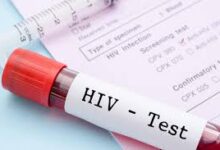Pakistan’s New Vaccine Drive Targets Silent Cervical Cancer

When Indian model and actress Poonam Pandey’s Instagram account announced in February 2024 that she had died of cervical cancer at the age of 32, social media was flooded with grief and condolences. A day later, Pandey appeared on video to reveal that she was alive and that the announcement was staged as part of a campaign to raise awareness about cervical cancer. The stunt triggered outrage as well as debate, but it succeeded in highlighting a disease that is preventable, yet remains one of the leading killers of women worldwide.
According to World Health Organization (WHO) data, cervical cancer is the fourth most common cancer among women, with about 604,000 new cases and 342,000 deaths recorded globally in 2020, and nearly 90 per cent of those deaths occur in low- and middle-income countries. The main cause is persistent infection with high-risk types of human papillomavirus (HPV), especially types 16 and 18, which are sexually transmitted viruses that most people encounter at some stage of their lives. While the body often clears the infection naturally, in some cases it lingers and slowly leads to precancerous changes and eventually invasive cancer. Risk factors such as early marriage, multiple pregnancies, long-term contraceptive use, smoking and weakened immunity increase the likelihood of progression.
More than 3,000 women die of cervical cancer in Pakistan every year, while WHO estimates suggest around 5,000 new cases and over 3,000 deaths annually.
Cervical cancer primarily affects women in their mid-life years, and in Pakistan it is the third most frequent cancer among women overall and the second most frequent among those aged 15 to 44. According to data shared at a recent meeting of the HPV Technical Working Group and reported by Dawn, more than 3,000 women die of cervical cancer in Pakistan every year, while WHO estimates suggest around 5,000 new cases and over 3,000 deaths annually. Pakistan has nearly 69 million women above the age of 15 at risk of developing the disease, and studies show that in about 88 per cent of local cervical cancer cases, HPV types 16 and 18 are the cause. Despite this burden, awareness remains extremely low and screening coverage is minimal research in Pakistan has found that only two to five per cent of women have ever had a Pap smear or HPV test, meaning most patients are diagnosed at an advanced stage when treatment is far less effective.
WHO added the vaccine Cecolin® to its list of products approved for single-dose schedules, and by then more than 50 countries had shifted to one-dose programmes with encouraging results.
The most effective prevention tool is the HPV vaccine, first approved internationally in 2006. According to WHO, by 2019 around 100 countries had introduced the vaccine into their national immunisation programmes, and by 2025 the number had grown to nearly 150, with many now offering it to both girls and boys. Originally, the vaccine was administered in two or three doses, but new evidence reviewed by WHO’s Strategic Advisory Group of Experts shows that a single dose provides strong protection, making it easier and cheaper for governments to roll out. In 2024, WHO added the vaccine Cecolin® to its list of products approved for single-dose schedules, and by then more than 50 countries had shifted to one-dose programmes with encouraging results.
Pakistan is now preparing to join these countries. This month, from September 15 to 27, the government, with support from WHO, UNICEF and Gavi, will launch its first large-scale HPV vaccination campaign, targeting nearly 13 million girls aged 9 to 14 across provinces including Sindh, Punjab, Islamabad and Azad Jammu and Kashmir. WHO has trained almost 50,000 health workers to carry out the drive. Experts say this step could change the country’s future cervical cancer burden, but also warn that vaccination alone is not enough—screening for adult women must expand simultaneously. Cultural taboos, stigma around sexual health, and the false perception that cervical cancer is linked only to “immorality” often silence discussion and prevent women from seeking care. Public health specialists argue that breaking this silence is as important as providing vaccines, because prevention only works if women are willing and able to access it.
This month, from September 15 to 27, the government, with support from WHO, UNICEF and Gavi, will launch its first large-scale HPV vaccination campaign, targeting nearly 13 million girls aged 9 to 14 across provinces including Sindh, Punjab, Islamabad and Azad Jammu and Kashmir.
The controversy around Poonam Pandey’s fake death may have been uncomfortable, but it sparked conversations that are desperately needed in societies like Pakistan’s, where women’s health issues are often hidden. Cervical cancer kills quietly, but it does not have to. With a safe and effective vaccine now available, supported by global evidence that one dose is enough, and with political will beginning to align, Pakistan has an opportunity to save thousands of lives. For parents, vaccinating daughters is not about morality—it is about protection. For governments, investing in awareness, screening and treatment is not just health policy—it is giving women the confidence and the right to live without fear of a preventable disease.






